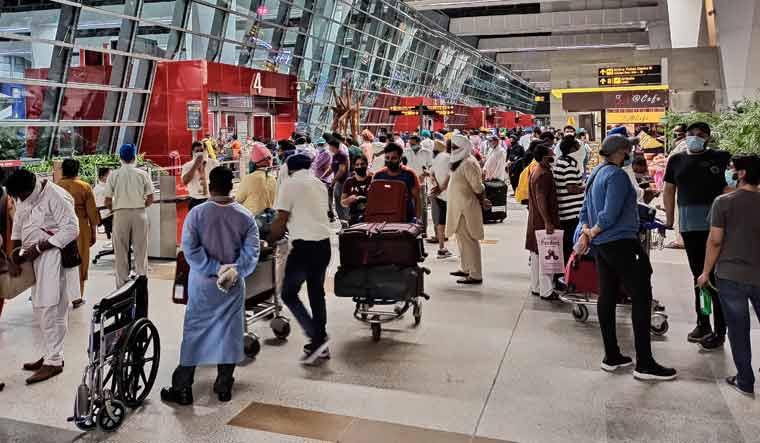One in four persons in the city appears to be infected by COVID-19 and that the virus has touched almost every household in the national capital, said the Delhi High Court which on Wednesday perused latest sero survey report pointing out that the central district being the worst hit.
According to the latest report of the fourth round of sero survey carried out in the national capital, which was placed before a bench of Justices Hima Kohli and Subramonium Prasad, the central district of Delhi has seen an increase of more than double in the rate of infection as compared to the data of the survey carried out in September.
The latest report has found that COVID-19 antibodies were present in 25 per cent of the persons tested.
After perusing the report, filed through Delhi government additional standing counsel Satyakam, the court said that "one in four persons in the city appears to be infected by COVID-19 and that the virus has touched almost every household in the national capital."
"No household has been left untouched," the bench said, referring to the survey data and questioned as to why the Delhi government was relaxing norms in such a situation when other similarly placed states were bringing in restrictions.
Under the survey conducted between October 15 to October 21, 15,015 people were tested and the prevalence of antibodieswas found to be slightly higher in females at 26.1 per cent as compared to males, 25.06 per cent, and also comparatively higher, at 29.83 per cent, in participants of more than 50 years of age, the report said.
It recommended that since Delhi was continuing to report an increase in COVID-19 cases and is yet to reach its peak, therefore, further sero surveillance should be paused till the numbers stabilize after which it can be resumed.
The survey also found that diabetesmellitus was observed to be a risk-factor for subclinical infection.
The report further stated that in the July and August rounds of the serosurvey, living in a containment zone was significantly associated with being seropositive.
"However, during the September and October round, the observed seroprevalence was lower in the participants who had ever lived in containment zones," it said.
It also said that among the participants not having influenzalike illness symptoms, the percentage of seropositivity or presence of antibodies was 26.8 per cent in October, which indicates the asymptomatic status of those who were infected by COVID-19.
The report was placed before the bench during the hearing on a PIL seeking increase in the COVID-19 testing numbers in the national capital and getting speedy results.







